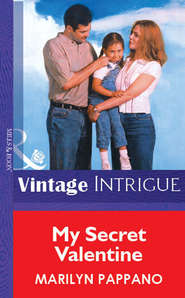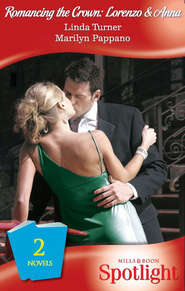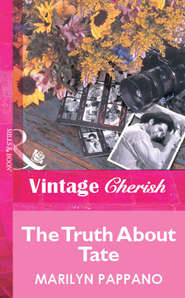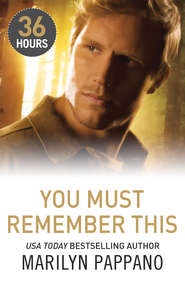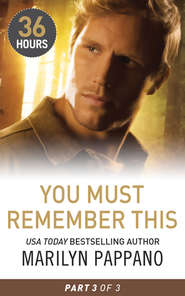По всем вопросам обращайтесь на: info@litportal.ru
(©) 2003-2025.
✖
Copper Lake Confidential
Автор
Год написания книги
2018
Настройки чтения
Размер шрифта
Высота строк
Поля
Macy’s smile was tight as she folded her arms across her middle, the classic body-language pose warning others to keep their distance. Unless she was cold, and she didn’t look cold. “Thanks for the help,” she said without meeting his gaze. “I appreciate it.”
“You’re welcome.” He stood there a moment longer before taking a few steps backward then pivoting to stride the length of the driveway.
Well. Brilliant comment for someone who’d ranked respectably high in his vet med graduating class and made part of his living with words. Animals and characters who existed only in his head were so much easier to deal with.
But not nearly as interesting as Macy Howard.
Macy made it halfway to the door before her feet automatically stopped.
Was she ready to face the monster inside?
Immediately she corrected herself. Mark had been the monster. The house had merely been his lair. There was nothing inside that could hurt her; she’d already faced the worst hurt possible when she’d lost the baby. Nothing here could scare her; she might have run away before, but she was strong now.
With a deep breath, she went through the door almost as if life were normal. She’d managed to assemble one box, ready for use, when her cell phone rang. The ring told her it was Brent. Common sense told her he was calling because she’d failed to check in yet.
“Hey, bub,” she greeted him, making an effort to sound as if she were on a relatively even keel.
“You didn’t call.”
“I intended to as soon as I took a break for dinner.” Before he could ask, she went on. “The trip was fine, the house is fine and I’m fine. How’s my baby girl?”
“Missing you. Anne and I are doing our best to keep her happy.”
Macy pulled out a bar stool and eased onto the buttery soft leather. Poor Clary had spent much of the past eighteen months missing her mom, through the times when Macy had been physically present but not so much mentally to the months her absence had been physical, as well. Months in a psychiatric hospital—luxurious, costly and no place for a small child. “Give her a big hug and a kiss for me. I can’t wait to see her Friday. You, too. And Anne.”
“We’re anxious to see you, too.”
Anxious, she was sure, was putting it mildly. There were enough years between them—seven—that he’d always had a protective streak, but after Mark’s death, it had multiplied ten times. Where before he may have gotten mildly concerned, now he was truly anxious, edgy, burdened with worry over her mental status, her ability to handle the slightest of stressors. If she hadn’t won Anne over in her argument to come here alone, she never would have managed to leave Charleston without him by her side.
One more debt of gratitude to her sister-in-law. Anne had had enough family drama of her own. Her older sister had been a patient at the same hospital as Macy, which was how Anne and Brent had met. Now she’d married into a family with its own share of drama.
“So you’re doing okay. Really okay.”
She smiled to help the confidence come across in her voice. “I am. Really. I got all the packing stuff, and I was just taping boxes together so I could get started. I’m fine, Brent, honestly. It’s an empty house. It’s no big deal.”
Though she hadn’t been able to climb one step to the second floor. Though her suitcase remained three feet away in the kitchen, and sleeping on the sofa in the family room wasn’t beyond the realm of possibility.
“I met a new neighbor.” She fiddled with one of the apples in the bright green colander while trying to distract him. “His name is Scooter, and he was trampling my daylilies. He was really quite nice, though, and apologized before leaving.”
There was a moment’s silence, then Brent cautiously repeated, “Scooter?”
“I know, awful name, isn’t it? Just about anything else would be better.” Her smile felt more natural as she recalled the dog feigning sleep, then innocence, then remorse. He’d been the one bright spot in her day—he and his owner.
Stephen Noble. Nice name. Nice guy.
“Okay, I give up,” Brent said. “Are you teasing or did you really meet someone named Scooter?”
She’d had a sense of humor before Mark’s betrayal and the miscarriage her doctor had attributed to overwhelming stress. For Clary’s sake, for her own sake, she was going to get that back. “I really did. He’s a beautiful yellow Lab who lives down the street and escapes every day to avoid taking his medicine.”
Brent’s chuckle was a reward. Just as the laughter had disappeared from her life, so had it from his. Her parents had been there for her, too, but the bulk of responsibility had fallen on him. He couldn’t get back those months, but she hoped that from now on, he and Anne could have the happy, hopeful lives newlyweds deserved.
“I’m assuming since Scooter couldn’t tell you about the medicine, you met his owner, too. Was she nice?”
“He,” she corrected him as an image of Stephen flashed into her mind again: tall, lanky, handsome in a disheveled sort of way. She hadn’t had disheveled in her life since meeting Mark. She would never have rigid and dishonest—oh, yeah, let’s not forget sociopathic—again. “Yeah, he was. He’s a vet in town.”
“Clary needs a dog when you’re up to—” Brent stopped, coughed, then lamely finished, “when you’re settled wherever.”
When you’re up to it. When you can take responsibility for yourself and your daughter. When you’re normal again. Once more Macy put all the everyday-average she could force into her voice. “I agree. I’d like having a dog in the house. Preferably one that would only piddle where he’s supposed to.” And stayed out of her flower beds, because wherever they wound up, she would have flowers.
With the awkwardness past, they talked a few minutes more before Brent said goodbye. As soon as she hung up, she missed the sound of his voice and felt the solitude closing in around her a bit more sharply. She wished she’d already gotten a dog so he could follow her from room to room and maybe bark a little or whine, just to remind her she wasn’t alone.
“Okay, Macy, you’re twenty-nine years old. The shrinks all agreed it was time for you to be on your own again. You’re on your medication, and you know staying busy helps keep the anxiety under control. Now do something.”
Her voice seemed to echo off the stone and tile and stainless, giving her the impetus to slide to her feet and go back to assembling boxes. When she had two dozen of them stacked on the floor, she brought in wrapping paper and Bubble Wrap, walked into the hall and fixed her gaze immediately on the Chinese vase on the foyer table. It was pretty in its own overembellished way, belonging to some dynasty centuries past, but she’d never liked it. She would be happy to give it a good home somewhere else.
She was reaching for the vase when something drew her attention up the stairs. The dust motes still floated, still smelled faintly of Mark’s cologne. They reminded her she hadn’t yet gone upstairs, a fact that niggled at her. It was just a house, a structure filled with nothing more harmful than memories. Yes, the bedroom she’d shared with Mark was up there; yes, his clothes still filled the closet. Yes, the nursery was there, too, waiting for a baby who’d died before living.
But her things were up there, as well, and Clary’s. And she had to face it eventually.
Wiping damp palms on her dress, she climbed the first step. Her gaze dropped to the runner bordered on both sides with rich dark wood. She’d learned through all her treatment that focusing on long-term goals didn’t work for her anymore. She had to take life one day at a time. Take these stairs one step at a time.
Mark’s cologne smelled stronger as she climbed—too strong, it seemed, for a house that had been locked up for a year and a half. But it was a very distinctive scent, one created just for him, and the sense of smell was such a very strong one. Just a whiff of baby lotion took her back to Clary’s infancy, and cinnamon transported her to her grandmother’s kitchen with an apple pie in the oven.
The stairs made a straight run to the second-floor landing, a gracious space with a sofa, built-in bookcases and a view through a large round window of rooftops, trees and the Gullah River. To the left was Clary’s room, the nursery, a bathroom and two guest rooms. To the right was the master suite.
She turned right, automatically assessing furnishings as she walked: portrait of Clary at one year old, keep; prissy demilune table that had come down from Mark’s family, discard. Engagement photo of Macy and Mark, keep in case one day Clary wanted it; massive oil painting of a former Howard’s ship at sea, discard.
The bedroom door was closed. Doors were meant to be closed, Mark had preached, a habit that went at least as far back in the family as his grandmother. Macy wrapped her fingers around the cool knob, twisted it and swung the door open.
Whatever emotion she’d expected didn’t come. The room was so distinctly stamped with Mark’s personality that, even though she knew it intimately, it was as if she’d never been there. Dark woods, heavy furniture, murky palette…how had she ever slept in this space? Laughed? Made love? How had she breathed in here?
Breathing was no problem now as she walked through the room. She felt distant, removed from the moment. The book she’d been reading the day he died still sat on the lacquered table next to the sofa in the sitting area. The jewelry chest, almost as tall as she and ornately carved, still stood against the wall, the cherrywood gleaming from its recent cleaning. She opened the bottom drawer, then closed it before sliding open the next one. Necklaces, bracelets, earrings, rings, watches—too much gold and too many gems for a woman who’d never really cared about jewelry.
The first and second drawers, peeked into on tiptoe, held cuff links, Mark’s watches and a half dozen antique pocket watches. He’d known exactly which Howard ancestor each had belonged to.
She opened the third drawer last, the only one that they’d shared. This had been their everyday stuff: matching Rolexes, the first necklace he’d ever given her, their wedding rings.
She had refused to have the ring buried with him. Finding out the truth about him, learning that the man she’d loved didn’t really exist—she couldn’t have borne having that connection with him through eternity. The only thing she was grateful to him for was her daughter, and considering that grief and sorrow and scandal had taken her second daughter from her, she figured they were even. She owed him nothing.
Shoving the drawer shut, she continued her walk-through of the suite. His closet, his bath, her closet, her bath. There she stopped at the window, fingers parting the wooden blinds enough to give her a view of the backyard that had given her such pleasure, of the pool and the guesthouse. That had been her idea, a place for family to stay when they visited, where Miss Willa could live if she ever had to leave Fair Winds.
She sniffed. Mark’s grandmother had left the family home, all right. After the funeral, she’d gone to Raleigh with her and Clary to stay with Mark’s mother. A month later she’d gone to sleep and never woken up.
She never would have stayed in the guesthouse anyway. Except for Brent a few times, no one ever had.
Movement at one of the windows caught her eye, and abruptly she blinked. It must be a reflection from the setting sun, she told herself, or the shadow of a bird flying overhead. But the sun was too low to cast reflections or shadows at that angle. She leaned closer, until her nose was pressed against a wooden slat, and stared harder through the narrow slit.
It was still there, pale and sort of oblong in shape, like a hand parting the blinds at the right height for a person to peek out just the way—






